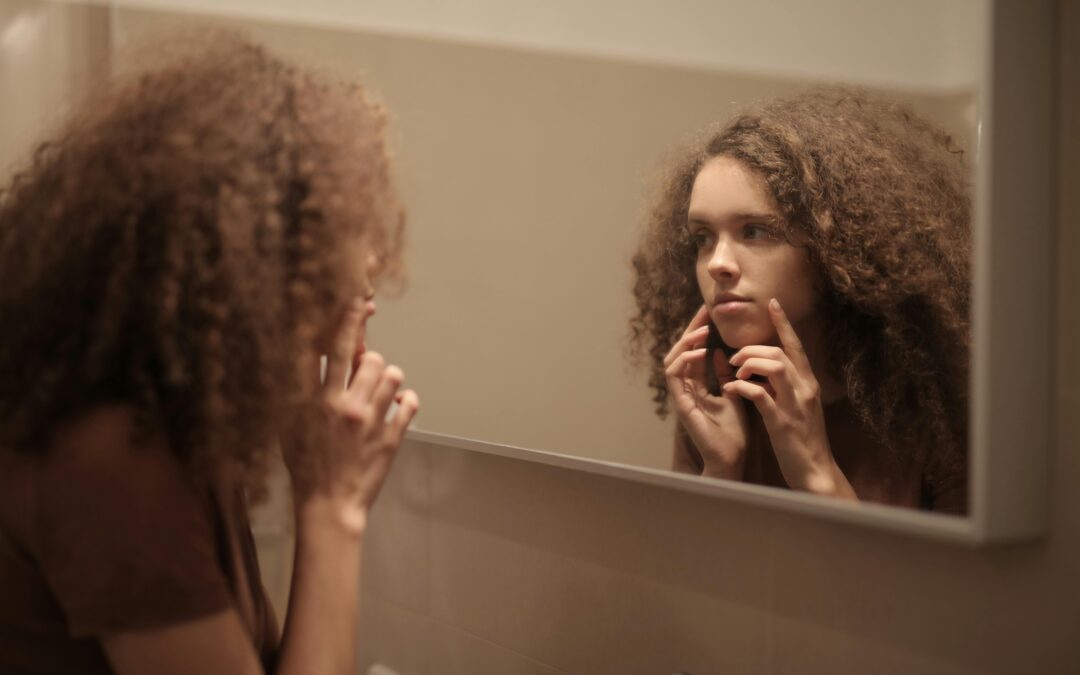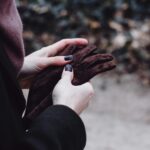Acne isn’t just a problem for teens. Whether you’re 16 or 46, breakouts can take a toll on your confidence and your skin health.
In Western medicine, the focus is usually on surface treatments: creams, antibiotics, or prescriptions that aim to dry out blemishes or control oil production. While those treatments may work temporarily, they often don’t address the deeper imbalances that cause acne in the first place.
That’s where Oriental medicine for acne comes in. With its focus on restoring internal balance, acupuncture and herbal medicine offer a holistic, lasting approach to clearer skin.
If you’ve been battling acne and want more than just another spot treatment, here are three steps you can take with Oriental medicine to heal your skin from the inside out.
Why Do We Get Acne? An Oriental Medicine Perspective
Acne is more than oily skin and clogged pores. In Oriental medicine, breakouts are seen as signs that something inside your body is out of balance. It could be inflammation, stress, hormone shifts, or even digestive issues – all of which can show up on your skin.
“From a Western medical perspective, acne is often considered to be related to hormones,” Dr. Ko explains. “While it’s not entirely unrelated, this view is somewhat superficial. From an Oriental medicine perspective, including in teenagers and young adults, acne typically results from an imbalance between the upper and lower parts of the body. When this balance is disrupted, heat rises upward and fails to descend, leading to the development of acne.”
Here are some of the most common reasons we see acne in our clinic, based on Oriental medicine’s holistic approach:
Too Much Heat (a.k.a. Inflammation Under the Surface)
In Oriental medicine, “heat” describes internal inflammation. This happens when your body is basically running too hot. You might not feel it like a fever, but heat can build up under the skin and lead to redness, swelling, and breakouts.
This kind of heat often shows up as:
- Red, inflamed pimples
- Skin that feels hot, irritated, or oily
- Breakouts that get worse with spicy food, alcohol, stress, or hot weather
- Other inflammatory or autoimmune skin conditions like psoriasis
To help with this, acupuncture and herbs work to cool the body, calm inflammation, and clear the skin naturally.
Your Skin Reflects Your Lungs and Digestive System
In Oriental medicine, your skin health is closely tied to how well your lungs and digestive system are working.
- When your lungs aren’t balanced (maybe from allergies, low immunity, or shallow breathing), you might see breakouts on your cheeks, forehead, or nose.
- If your digestive system isn’t happy—because of poor diet, stress, or sluggish digestion—you might notice acne around your mouth, chin, or jawline.
That’s why treating acne often means supporting digestion, improving gut health, and making sure your lungs and skin are working in sync.
Your Skin Reflects Other Organ Systems
Adult acne is also caused by a disruption in the balance between the upper and lower parts of the body. However, acne that appears in specific areas of the face reflects the condition of internal organs. For example, acne under the chin is related to the uterus; the area under the chin corresponds to the uterus, the cheeks to the stomach, and acne on the forehead is typically due to an imbalance between the upper and lower parts of the body.
Stress and Hormones: The Perfect Storm for Breakouts
Have you ever noticed your skin gets worse during a stressful time or before your period? When you’re under stress, your body can hold onto tension, and that affects your hormones and circulation.
In Oriental medicine, this is called “stagnation” – your body isn’t flowing smoothly. That stuck energy can cause hormone-related breakouts, especially around the chin and jawline.
Acupuncture is especially good at helping your body release that tension (both mentally and physically), balance your hormones, and keep your skin calm and clear.
When Acne Just Won’t Go Away: Deeper Imbalances
Sometimes, acne can be stubborn and keeps popping up despite the use of multiple products. In Oriental medicine, this often means your body needs help clearing out deeper inflammation or waste buildup your body hasn’t cleared efficiently.
Acupuncture and herbs help by improving your circulation, supporting your immune system, and getting things moving again so your skin finally has a chance to heal.
Step 1: Balance Your Body with Acupuncture
In Oriental medicine, acne is a reflection of what’s going on inside. Heat, dampness, hormonal imbalances, and even emotional stress can all show up on the skin.
Acupuncture helps by addressing these root causes. By using precise points on the face and body, acupuncture works to:
- Reduce internal heat and inflammation
- Improve circulation and lymphatic drainage
- Balance hormones, particularly those linked to breakouts (like androgens)
- Calm the nervous system and reduce stress-induced flare-ups
Many patients notice fewer breakouts, improved skin texture, and a healthier glow within a few sessions. And because acupuncture supports the whole body, treatments often help with related issues like digestion, mood, or menstrual irregularities – all of which can impact your skin.
Step 2: Support Your System with Herbal Medicine
Acupuncture lays the foundation for balance, but herbal medicine takes your skin support a step further. In Oriental medicine, customized herbal formulas work internally to clear heat, drain dampness, and balance the organ systems responsible for skin health (like the Lungs, Liver, and Stomach).
Dr. Ko has a great analogy to understand herbal medicine’s role in treating acne: “Think about it: if a house is collapsing on the inside, would painting the exterior fix the problem? Similarly, topical ointments or creams—most of which contain antihistamines—may temporarily relieve itching, but they cannot provide a fundamental cure. Since fundamental healing is only possible by treating the inside of the body, Oriental medicine is the most effective method of treatment.”
Depending on your specific skin pattern, your herbalist may recommend formulas that:
- Clear heat toxins that cause red, inflamed pimples
- Address dampness that leads to cystic or hormonal acne
- Regulate digestion to prevent toxin buildup
- Harmonize the Liver to reduce stress-related breakouts
Unlike over-the-counter acne pills, Oriental medicine herbs are tailored to your unique body and symptoms and have few or no side effects.
Step 3: Nourish Your Skin with Lifestyle & Diet Adjustments
In Chinese medicine, your skin reflects your lifestyle just as much as your internal health. That’s why the third step in clear skin isn’t just about what you put on your face – it’s focused on how you care for your body every day.
Your acupuncturist may recommend simple, realistic adjustments such as:
- Eating more cooling, hydrating foods (think cucumbers, leafy greens, berries) to balance internal heat
- Limiting greasy, spicy, or overly processed foods that increase dampness and heat
- Staying hydrated and avoiding excessive dairy or sugar, which can trigger breakouts
- Managing stress with mindfulness, breathing exercises, or regular acupuncture sessions
- Prioritizing good sleep, which supports healthy skin repair and hormone balance
These everyday habits work hand-in-hand with your acupuncture and herbal treatments to keep your skin clear and your body in balance.
Clear Skin Starts Within
At 120 Acupuncture Clinic, we see acne as more than a surface issue. By working with your body (not against it), Oriental medicine for acne helps you address the root causes of breakouts and support long-term skin health.
So, if you’re ready to move beyond temporary fixes and start a holistic journey to clearer, healthier skin, we’re here to help!
Book your consultation today or call us at 1-818-980-7979 to discover how acupuncture, herbal medicine, and lifestyle support can clear acne, transform your skin, and boost your confidence.







